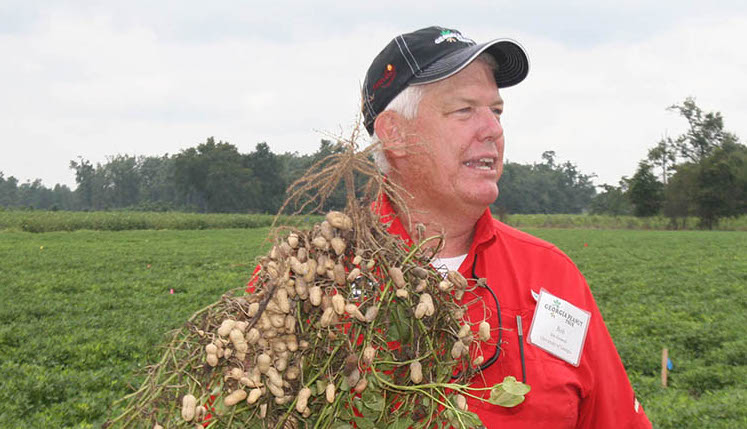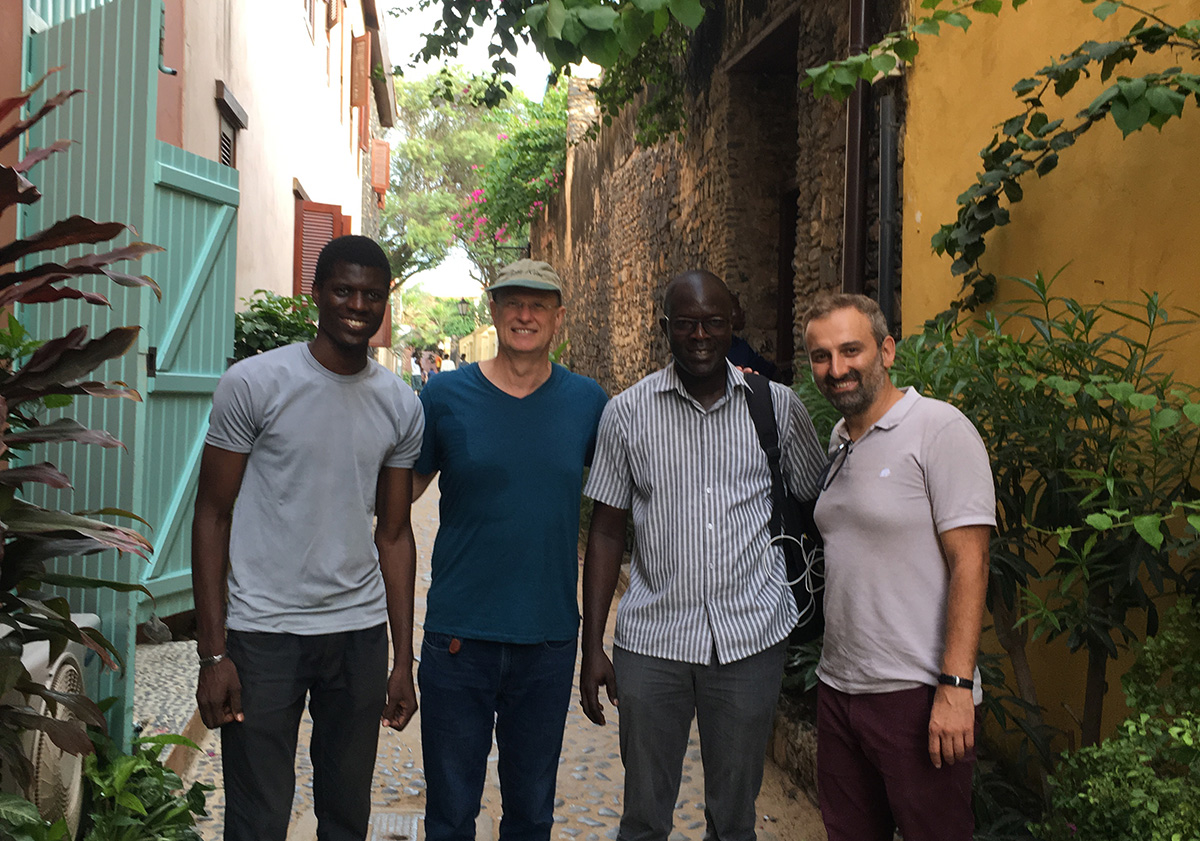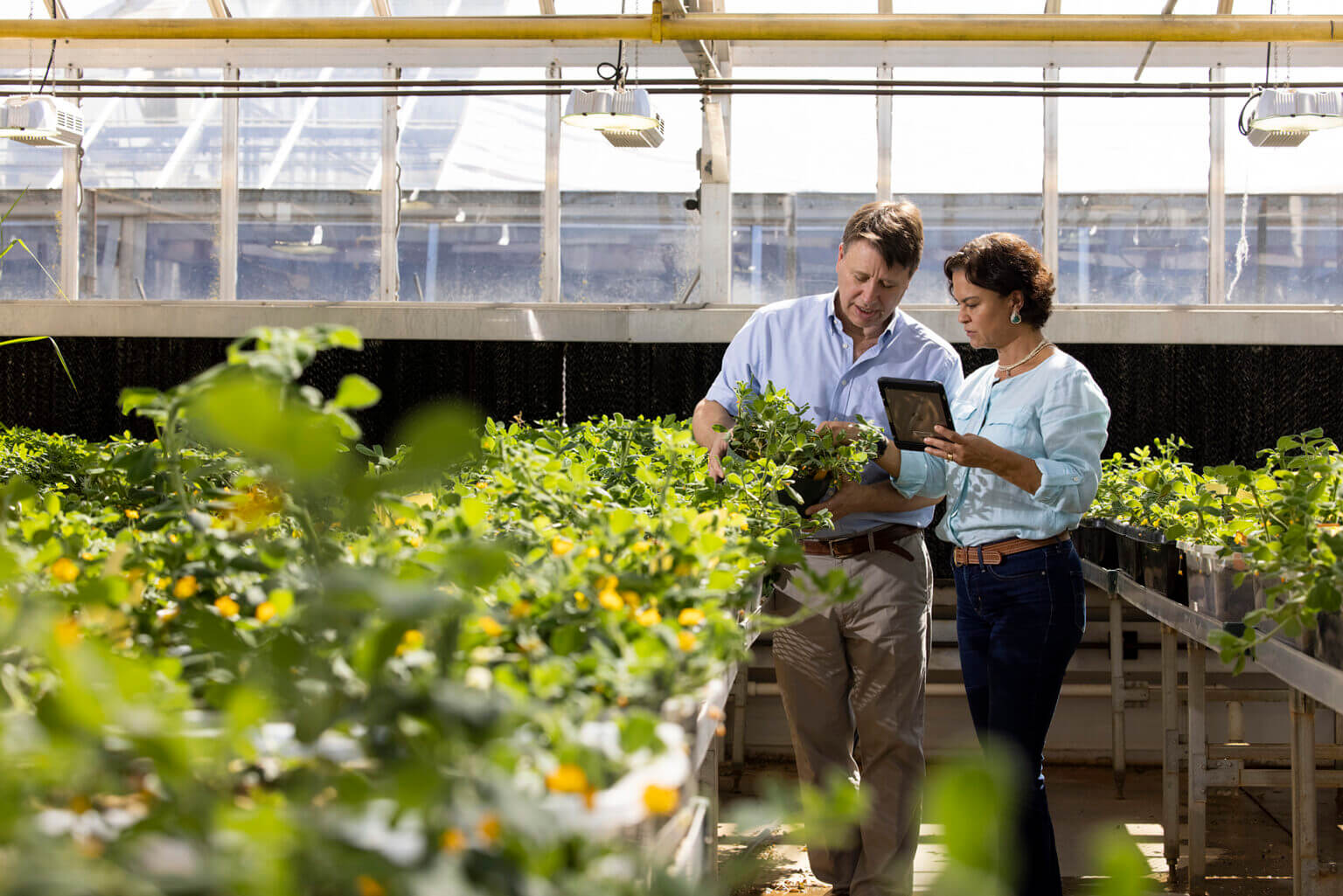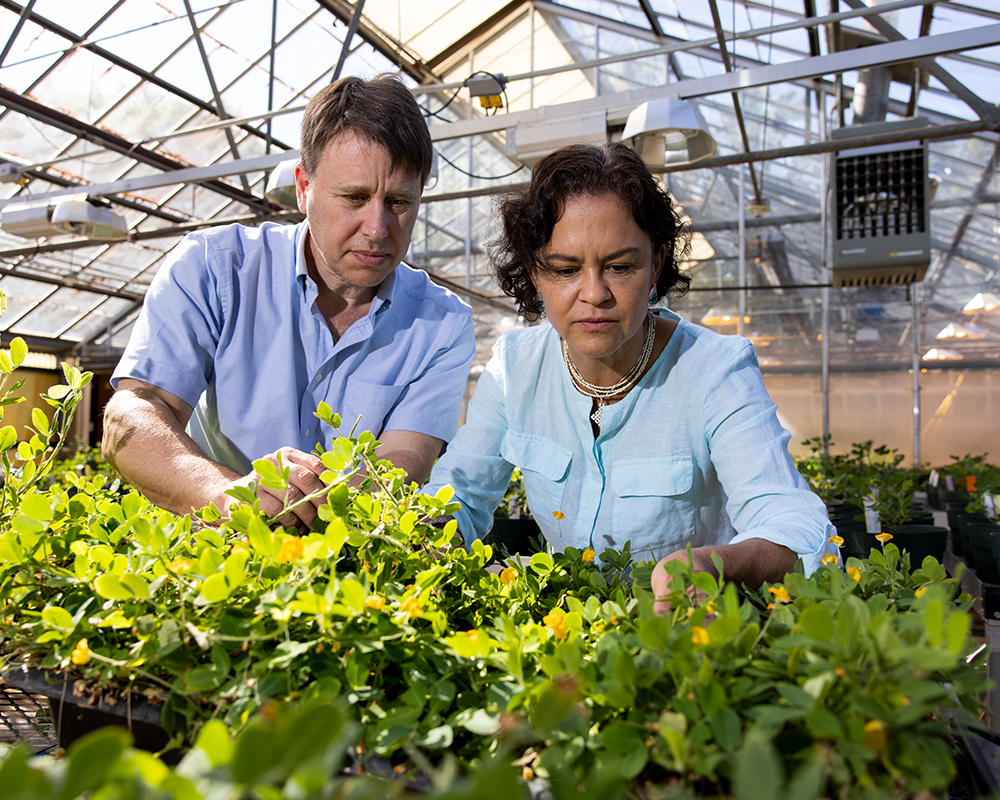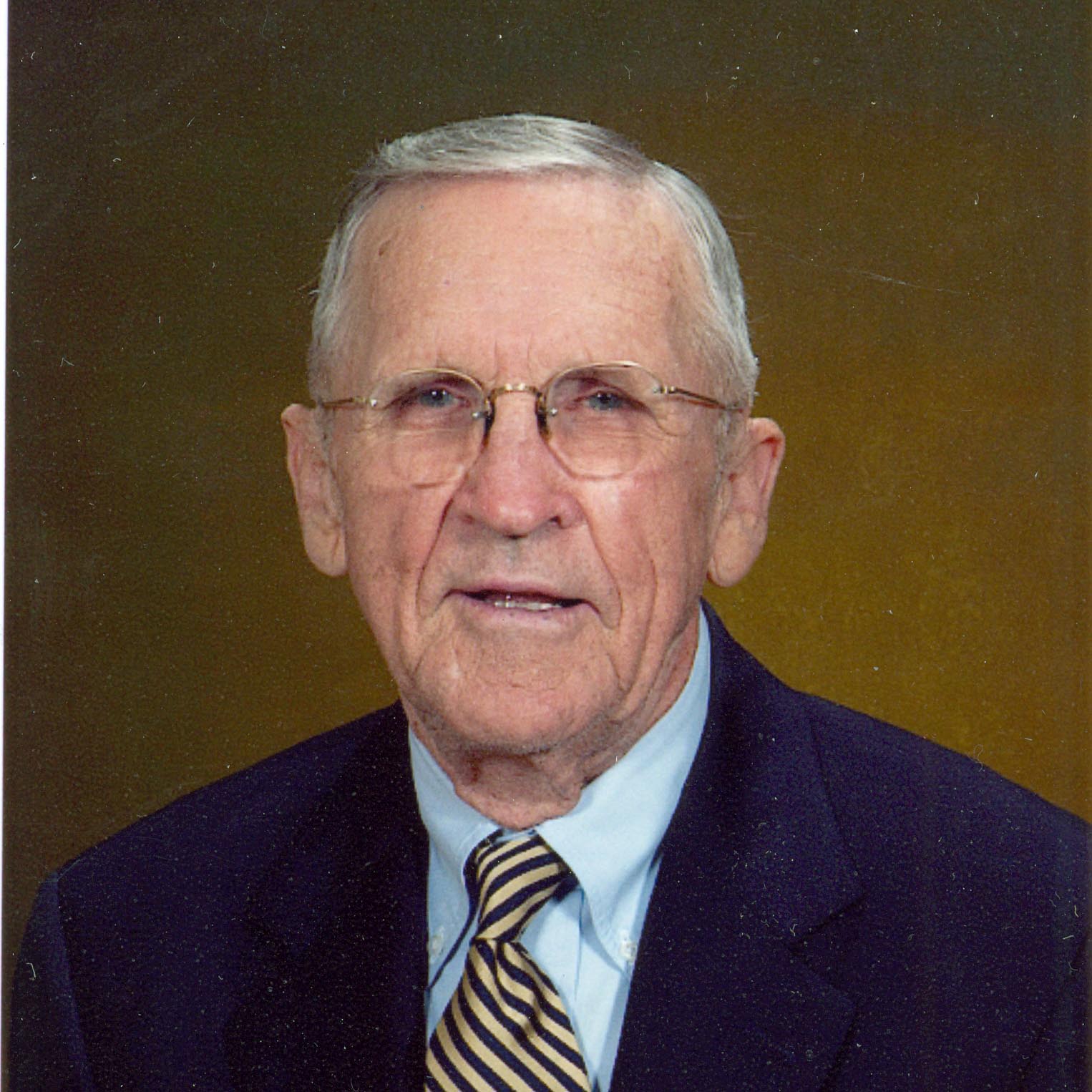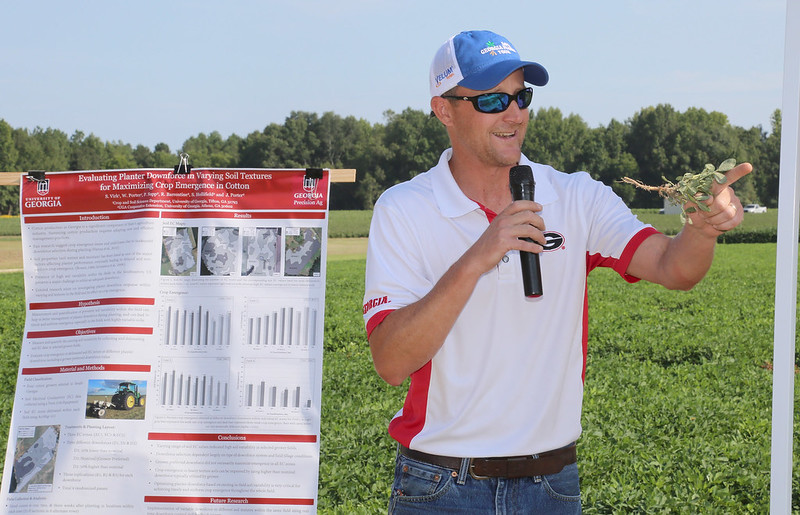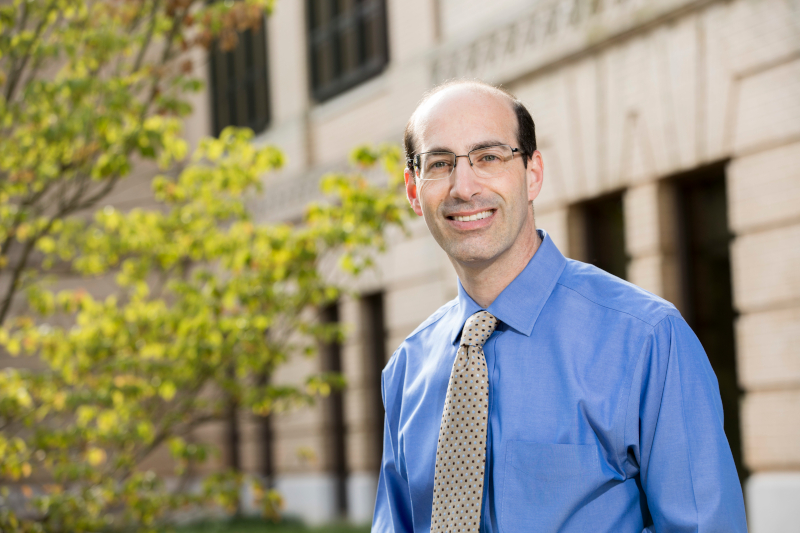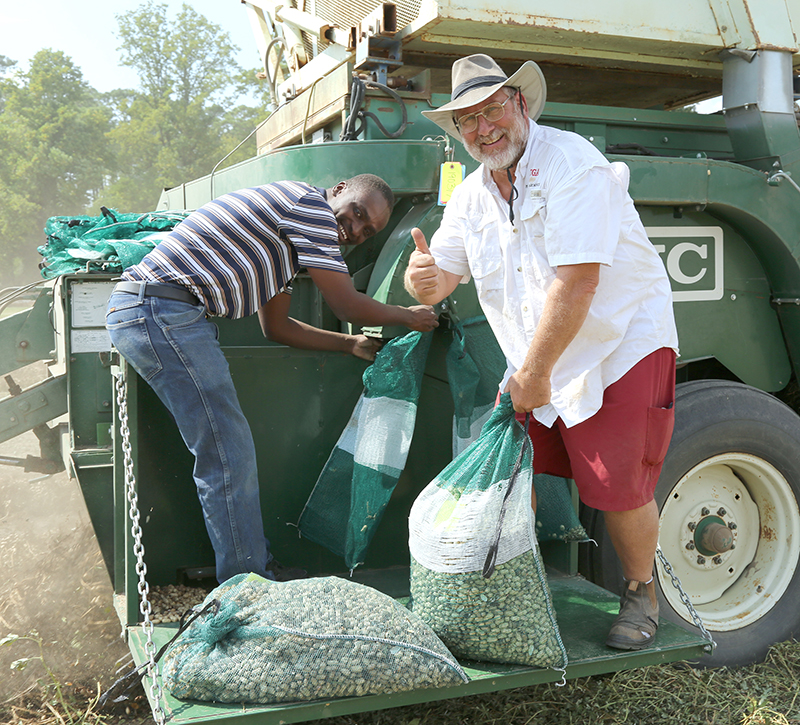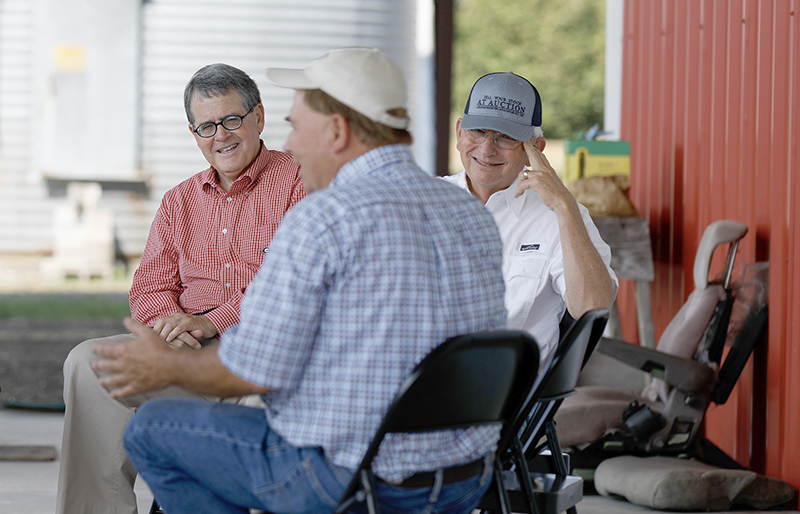.jpeg) CAES News
CAES News
Disease-Resistant Hybrids
Using proven production practices to fight disease in the field, Georgia farmers produce half the peanuts grown in the U.S. each year. Modern peanut varieties carry few genetic defenses against some of the more devastating diseases, so peanut farmers carefully consider when to plant, whether to irrigate and when to apply fungicide and insecticide to keep those diseases from infecting the plant.

